Pre-Workout vs Post-Workout: Everything You Need To Know
Author:
Unlock your full potential by engaging with our experts and community! Have questions about your fitness journey or looking for expert advice on weightlifting techniques? Don’t hesitate — leave a comment below and Oleksandr Maksymenko will provide a personalized answer and insights to help you reach your goals.
Torokhtiy is reader-supported. Some links are affiliate links, and we may earn a commission at no extra cost to you. See our disclosure page for details.
If you are looking to take your workouts to the next level, you have probably thought about adding pre and post-workout supplements to your routine. While supplements are not necessary, they can definitely make you bring your A-game. But, which should you choose between pre workout vs post workout?
Here, we will dig into the differences between pre-workouts vs. post-workouts to help you determine which supplement is ideal for your needs and goals.
Differences between pre-workout vs. post-workout: Pre-workouts are taken 30-60 minutes before a workout and include caffeine, creatine, BCAAs, citrulline, and beta-alanine – all you need to improve performance. Post-workouts 30 minutes up to 2 hours after a workout, and they can be whey proteins, BCAAs, and carbs to enhance recovery.
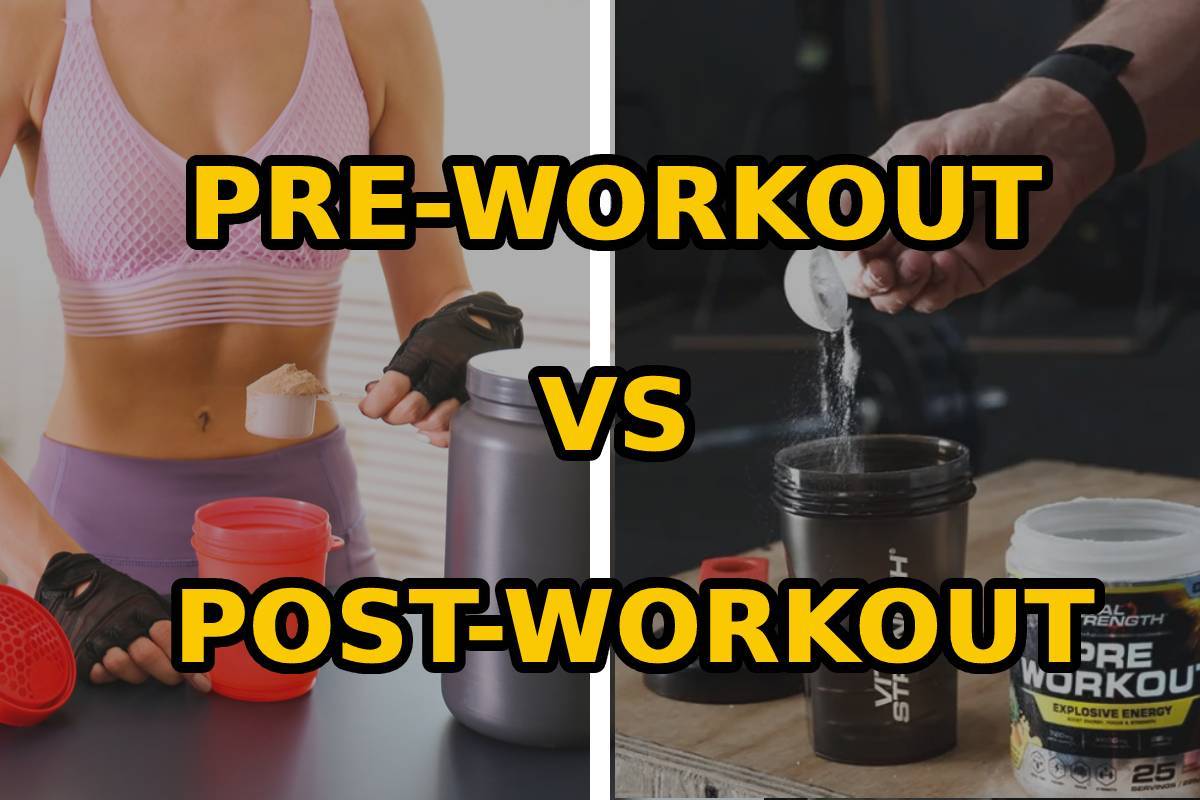
What Is A Pre-Workout?
Pre-workout supplements are designed to be taken before a workout. These are meant to boost your energy before a workout, allowing you to train harder and longer.
There are no set guidelines for a pre-workout. So, the ingredients might vary from brand to brand. But, overall, the most common pre-workout ingredients are:
- Caffeine. It stimulates the central nervous system meaning it helps increase energy levels and fight fatigue.
- Creatine. Helps increase muscle’s phosphocreatine stores, which in simpler terms, means you have more explosive energy available. Creatine is effective at increasing muscle strength and weightlifting performance, but it is worth keeping in mind that it is usually not contained in sufficient quantities for this purpose in the pre-workout.
- BCAAs. Can help reduce muscle soreness and promote better post-workout recovery.
- Citrulline. Increases vasodilation, allowing more oxygen and nutrients to reach essential organs.
- Beta-alanine. It increases time to exhaustion, meaning you can last longer during a workout before feeling fatigued.
What Is A Post-Workout?
Now that we know what are pre-workout supplements, what are post-workout supplements?
A post-workout supplement is meant to be taken after a workout, typically 30 minutes to two hours after you finish. The main purpose of post-workout supplements is to promote good recovery and enough nutrient replenishment.
The faster and the better you recover, the easier it will be to hit the gym the following day, and the better muscle gains you can have.
The most common post-workout supplements are protein shakes. But other post-workout supplements include creatine, BCAAs, green powders, and carbs (they help with glycogen replenishment).
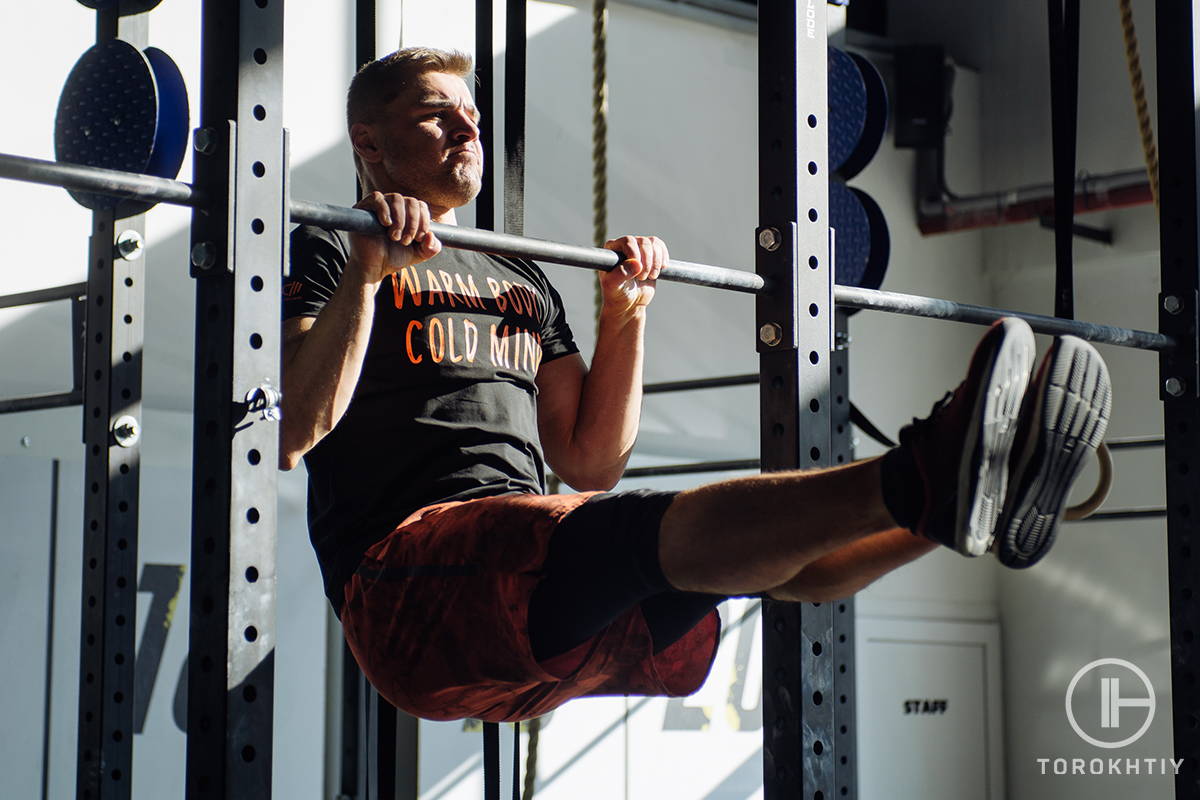
Pre-Workout vs. Post-Workout
There are several differences between a pre-workout and post-workout. Here, we’ll talk about the differences in nutrients, price range, benefits, and ingredients.
1. Nutrient Profile
The nutrient profile between pre-workouts and post-workouts is very different.
The following table compares the nutrients in pre and post-workouts. Remember that each brand can have different ingredients, which can change the nutrient composition.
| Nutrient | Pre-Workout | Post-Workout |
|---|---|---|
| Calories | 0-50 | 0-300 |
| Carbs (g) | 0-5 | 2-30 |
| Proteins (g) | 0-5 | 0-30 |
| Fats (g) | 0-5 | 0-10 |
As you can see, there is a massive difference in the nutrient composition of pre and post-workouts.
As mentioned before, the purpose of pre-workouts is to provide sufficient energy for a hard workout. And, to prevent feeling full before a workout which can result in reduced performance, typically, these are made with almost zero calories. There are pre-workouts with more calories, such as 200 kcal per serving, but we recommend keeping the low-calorie options in most cases.
The pre-workouts that contain calories are mostly given by carbs. Carbs are the preferred energy source in the body, and they take a shorter amount of time to digest compared to fats and proteins.
On the other hand, the purpose of post-workouts is to replenish the energy lost during the exercise and promote good recovery. While there are some post-workouts that won’t provide any calories, although they contain substances that can help recovery, most of them are high in calories since they are a combination of proteins and carbs.
Again, as mentioned before, remember that each supplement can have different nutritional values depending on the purpose of the supplement. Proteins help repair muscle damage to promote muscle growth, and carbs help replenish glycogen stores. However, if you consume enough of these nutrients with your diet, an excess will not do any good. Below we recommend a low-calorie post-workout that can help recovery.
2. Price Range
On average, a pre-workout supplement can range between $0.50 and $2.50 per serving. The price varies depending on the ingredients and the company’s additional benefits, such as certifications, money-back guarantees, or other benefits.
The price range for post-workout supplements is similar. You can find post-workout supplements that go from $0.50 to $3.00 per serving. Again, the price range varies according to the number of ingredients, quality, and company traits.
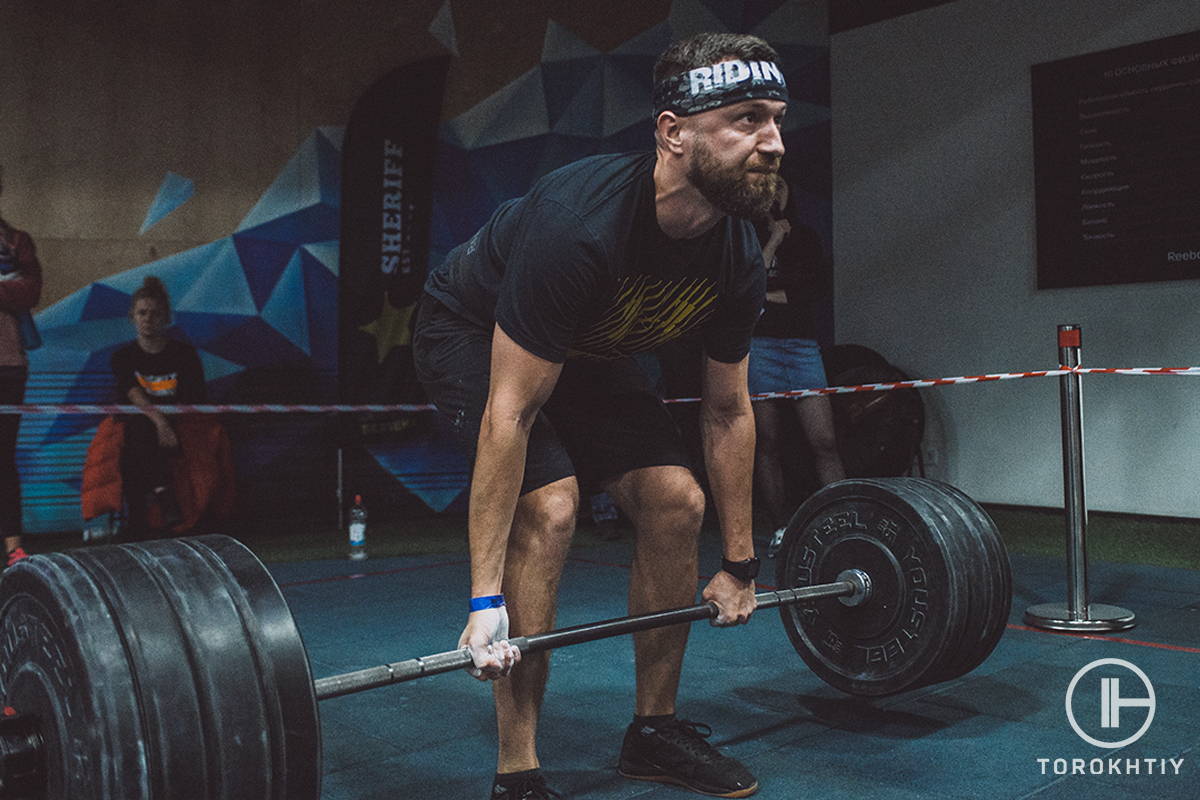
3. Benefits
Since pre and post-workout supplements also use different ingredients, they each have different benefits.
✅ Pre-workout supplements can provide the following benefits.
- Boost mental energy, improve focus
- Enhances productivity.
- Increases strength and power.
- Enhances endurance.
- Promotes muscle growth.
✅ On the other hand, post-workout supplements might provide the following benefits.
- Reduces muscle breakdown.
- Promotes muscle growth.
- Helps reduce DOMS (delayed onset muscle soreness).
- Prevents dehydration.
- Improves recovery.
- Replenishes glycogen stores.
So, as you can see, pre-workouts prepare the body for the workout, while post-workouts support recovery.
Pre-Workout vs. Post-Workout: Summary
Both pre and post-workout supplements are safe and effective. They can provide several benefits, but they also provide some drawbacks. Let’s check the pros and cons of pre-workouts and post-workouts.
Pros And Cons Of Pre-Workouts
Positives:
Could be better:
Pros And Cons Of Post-Workouts
Positives:
Could be better:
| Product | Price range per serving | Calories | Best for | Value for money | Side effect risks |
|---|---|---|---|---|---|
| Pre-Workout | $0.5 – $2.5 | 0-50 | All purposes | Mid/High | Moderate |
| Post-Workout | $0.5 – $3 | 0-300 | Bulking | Low/Mid | Low |
Pre-Workout vs. Post-Workout: When To Use Each
The main purpose of pre-workout supplements is to give sufficient energy prior to a workout. For that reason, they are meant to be taken 30 to 60 minutes before a workout.
On the other hand, post-workout supplements are taken 30 minutes to two hours after training.
In the beginning, people often referred to an “anabolic window,” meaning you needed to consume a post-workout almost immediately after training.
While it is true there is some muscle damage after training, research shows that you still have more time than 30 minutes after a workout. You can have good muscle growth as long as you get the daily recommended calories and macros.
Now the question relies on which pre and post-workout supplements you should take.
A good pre-workout supplement is the one from Naked Nutrition. It has effective doses of beta-alanine, creatine monohydrate, L-arginine, and natural caffeine. It also contains vitamins C, B3, B6, folate, B12, calcium. It can help boost energy, strength, and power to take your training to the next level.
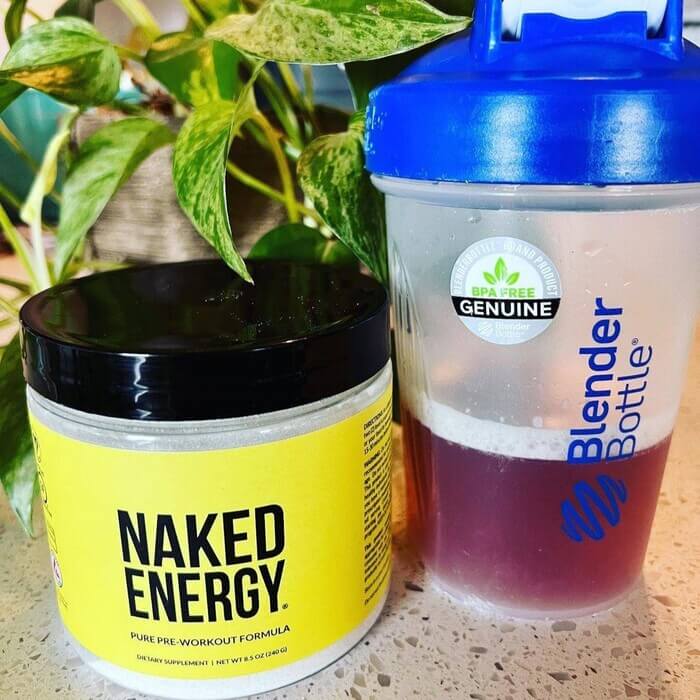
If you want a post-workout supplement, one of the best available in the market is Post supplement from Transparent Labs. It offers L-glutamine, betaine anhydrous, L-carnitine, tart cherry powder, and Astragin.
While Post doesn’t contain calories, it has several ingredients that can help support muscle recovery. For example, in a 2015 study, people who were supplemented with L-glutamine had a faster recovery and decreased muscle soreness. Another ingredient, betaine-anhydrous, could potentially decrease cortisol levels and decrease lactate response, which can improve post-exercise recovery.
But, keep in mind it doesn’t offer any protein or carbs. So, make the necessary adjustments based on your recommended intake and goals.
FAQ
Do I Need A Pre And Post Workout?
Pre-workout supplements help increase energy and reduce early fatigue. On the other hand, post-workouts help recovery and muscle growth. While they are not mandatory, they are worth trying, especially if you feel tired before a workout or your body is not recovering properly.
When Should I Take Pre And Post Workout?
You should take a pre-workout supplement 30 to 60 minutes before a workout. On the other hand, you should take a post-workout supplement 30 minutes to two hours after a workout.
Conclusion
So, which should you choose a pre or post workout? The answer is: it depends on your goals and needs.
Pre-workout and post-workout supplements, while not mandatory, can be a good way to enhance performance and promote better recovery. Different supplements are available in the market, so choosing the one that fits your needs and goals will be crucial to have the best results.
Do you use a pre-workout or post-workout supplement? Let us know in the comments!
Also read:
- Does Pre Workout Make You Gain Weight
- Creatine vs Pre Workout
- Amino Acids vs Pre Workout
- G Fuel or Pre Workout
- Pre Workout vs Fat Burner
- Should You Take Pre Workout Before Cardio
- Are There Natural Pre Workout Supplements
- Cellucor C4 Pre Workout Review
- Pre-Workout vs Post-Workout: Everything You Need To Know
References:
- Protein content and amino acid composition of commercially available plant-based protein isolates // Ncbi: https://www.ncbi.nlm.nih.gov/pmc/articles/PMC6245118/
- Protein and Amino Acids // Ncbi: https://www.ncbi.nlm.nih.gov/books/NBK234922/
- Effects of Whey Protein Alone or as Part of a Multi-ingredient Formulation on Strength, Fat-Free Mass, or Lean Body Mass in Resistance-Trained Individuals: A Meta-analysis // Pubmed: https://pubmed.ncbi.nlm.nih.gov/26403469/
- Protein – Which is Best? // Ncbi: https://www.ncbi.nlm.nih.gov/pmc/articles/PMC3905294/
- International Society of Sports Nutrition Position Stand: protein and exercise // Pubmed: https://pubmed.ncbi.nlm.nih.gov/28642676/
Why Trust Us?
With over 20 years in Olympic weightlifting, strength training, nutrition coaching, and general fitness our team does its best to provide the audience with ultimate support and meet the needs and requirements of advanced athletes and professional lifters, as well as people who strive to open new opportunities and develop their physical capabilities with us.
By trusting the recommendations of our certified experts in coaching, nutrition, and sports training programming, as well as scientific consultants, and physiotherapists, we provide you with thorough, well-considered, and scientifically proven content. All the information given in the articles concerning workout programming, separate exercises, and athletic performance, in general, is based on verified data.
The product testing process is described in more detail here.
Author: Oleksandr Maksymenko
Certified Sports Nutritionist,
MSc Sports Dietetics
Specializing in: Weight management, Fitness / Sports nutrition
Oleksandr is a professional fitness nutritionist certified by the Fitness Professional Association (FPA). He follows the principles of evidence-based dietetics and fosters a healthy relationship with food in his clients, ensuring there are no strict prohibitions on their favorite foods or frequent lapses. His primary goal is not only to achieve results for you but also to sustain them over the long term, all while enjoying tasty and delicious food.



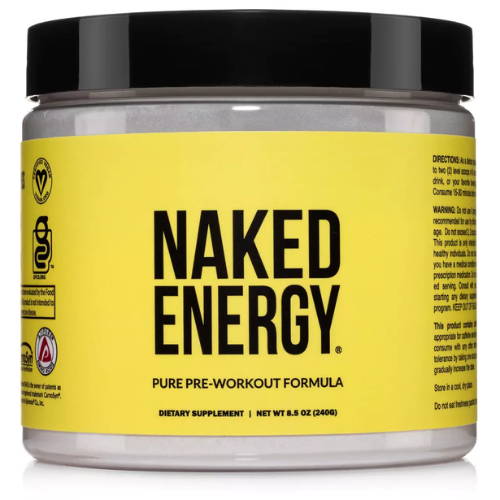
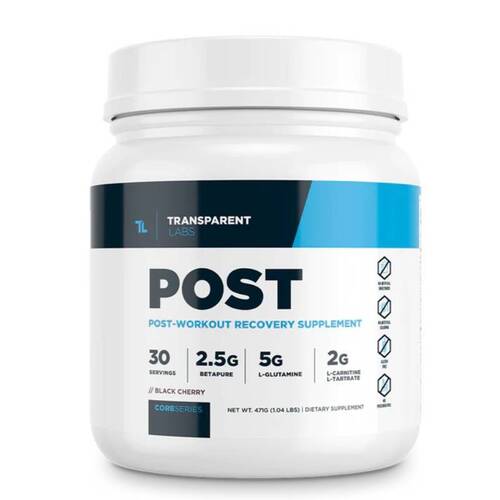
Still have questions after reading our article? Unlock your full potential by engaging with our experts and community! Don’t hesitate — leave a comment below and Oleksandr Maksymenko will provide a personalized answer and insights to help you reach your goals.